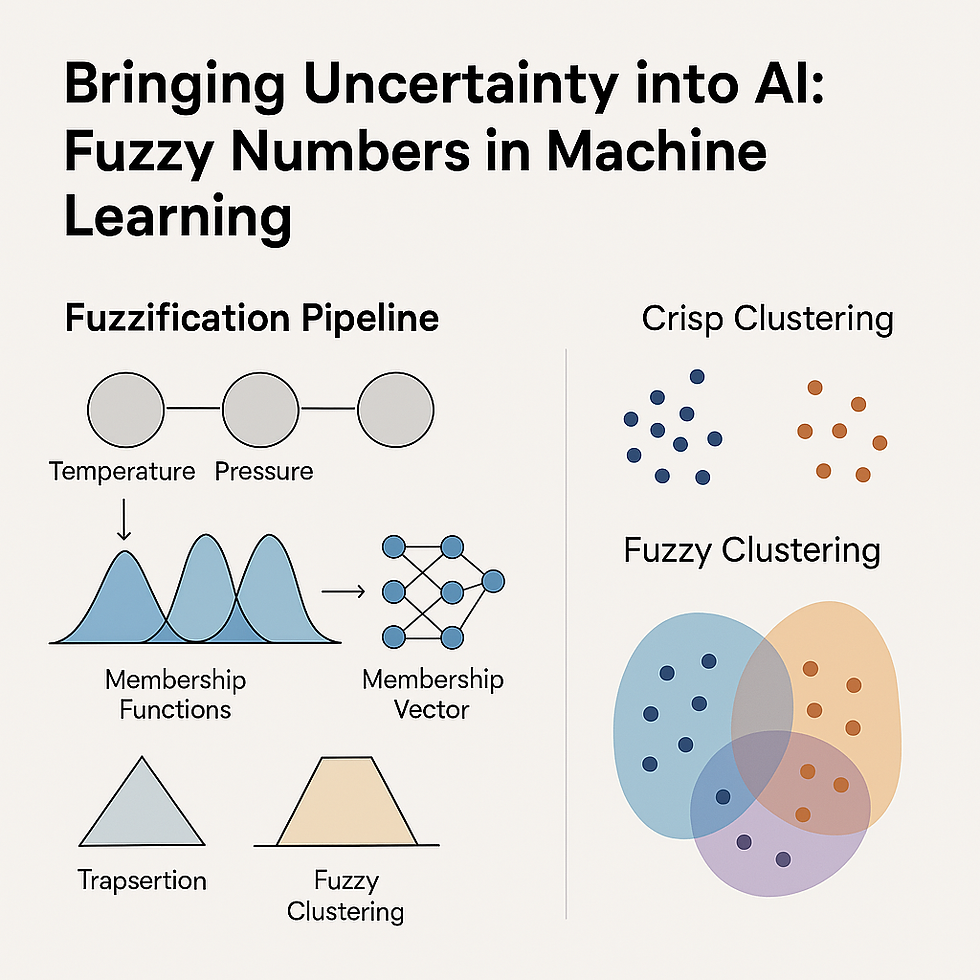🧪 Tackling Clinical Data Challenges with Fuzzy Logistic Regression
- Gnosis Analytics Crew

- Jul 2
- 2 min read

Clinical datasets are often impacted by severe class imbalance, complete separation, and small sample sizes in data. These issues can render traditional models unreliable or entirely inoperable, impacting clinical researchers' ability to accurately predict probabilities for certain medical conditions in patients. In one of my most impactful research collaborations, we developed a fuzzy logistic regression framework designed specifically to handle these obstacles—offering a more resilient and interpretable alternative for binary classification in clinical studies.
⚠️ The Problem: When Data Breaks the Rules
Many clinical datasets suffer from class imbalance, for example, when the population of patients that have a certain condition we are trying to predict is much smaller than those who do not. Another key issue is that of complete separation, where a set of predictors perfectly separate the outcome. These two issues can cause traditional logistic regression to break down entirely, either producing infinite estimates or failing to converge.
This is a particularly serious challenge in biomedical research, where predictive models are used to guide diagnosis, treatment, or risk stratification—contexts where you can’t afford to get it wrong.
💡 The Solution: Fuzzy to the Rescue
Our proposed solution blends fuzzy set theory with logistic regression to introduce tolerance and flexibility into the modeling process. Unlike conventional models that make hard decisions, fuzzy models can handle degrees of uncertainty - perfect for working with imperfect, high-risk data environments.
In this framework, clinical variables are expressed using linguistic terms (like “high risk” or “moderate”) and fuzzy membership functions, allowing us to model vagueness and avoid overfitting.
📈 What It Achieves
Stability: The fuzzy model remains robust even under complete separation or tiny sample sizes.
Interpretability: It’s transparent enough for clinicians to understand and trust.
Performance: Demonstrated competitive predictive accuracy compared to traditional methods (machine learning) without the convergence headaches.
🧬 Real-World Potential
This model has strong implications for clinical decision support systems, where robustness and interpretability are just as important as raw accuracy. It opens the door to smarter tools in fields like oncology, epidemiology, and risk prediction—especially in resource-constrained or early-stage research settings.
📘 Published Work
This research is published in BMC Medical Research Methodology, one of the top-tier medical research journals.
Charizanos, G., Demirhan, H., & İçen, D. (2024). Binary classification with fuzzy logistic regression under class imbalance and complete separation in clinical studies. BMC medical research methodology, 24(1), 145.





Comments